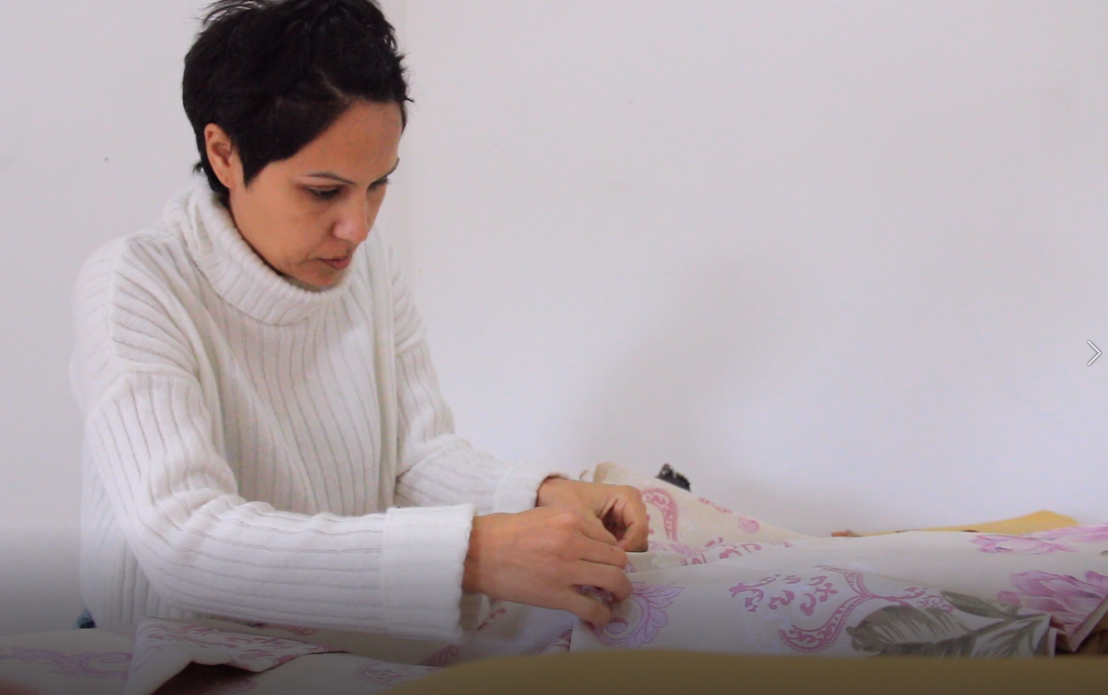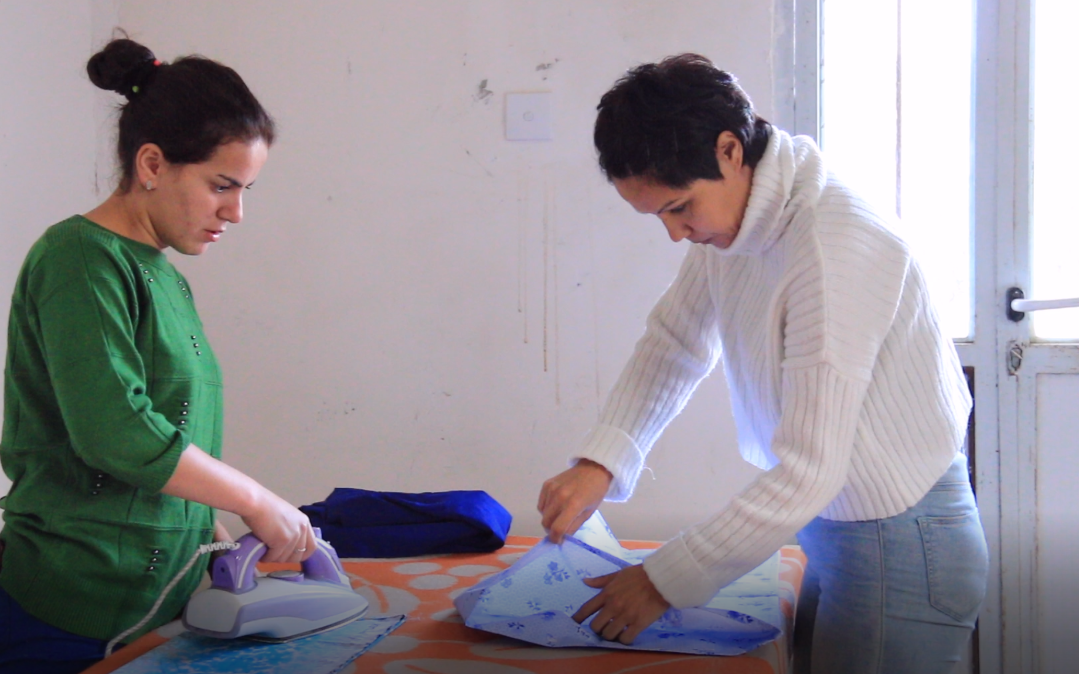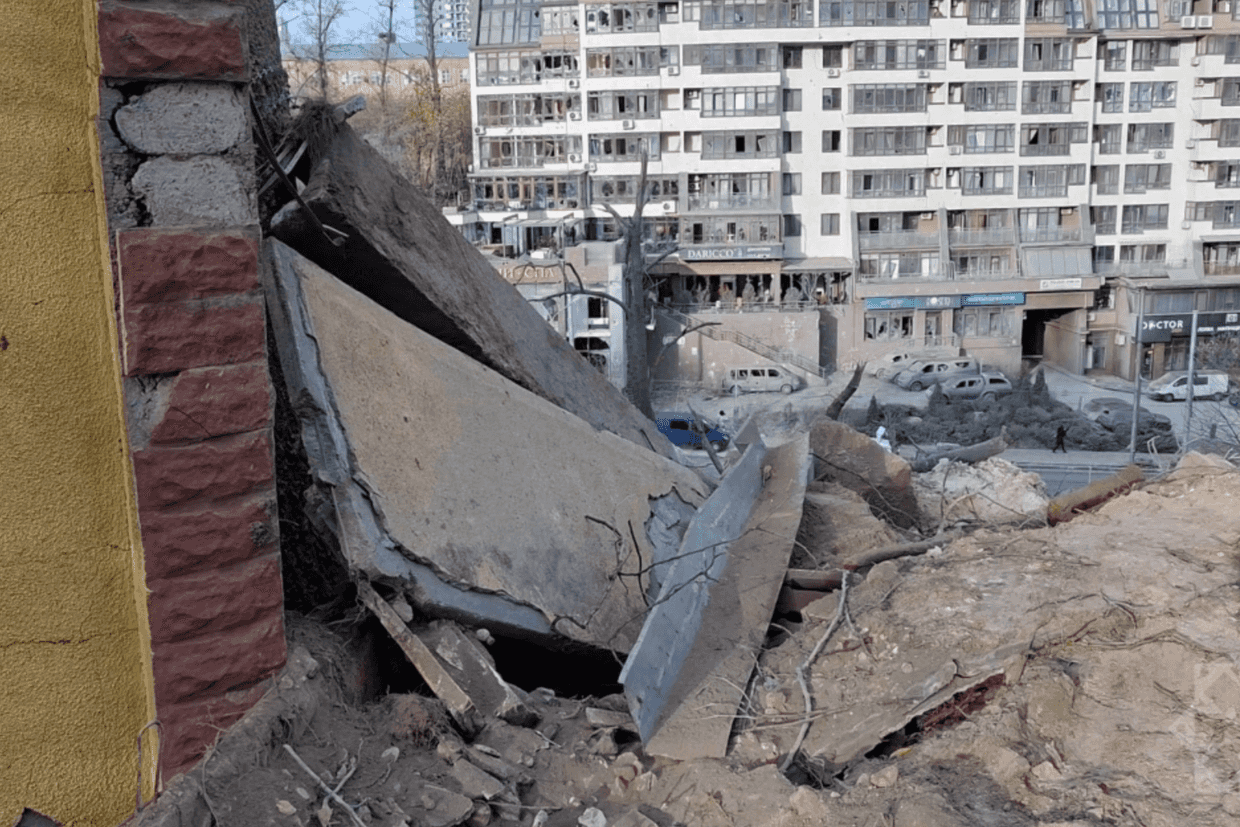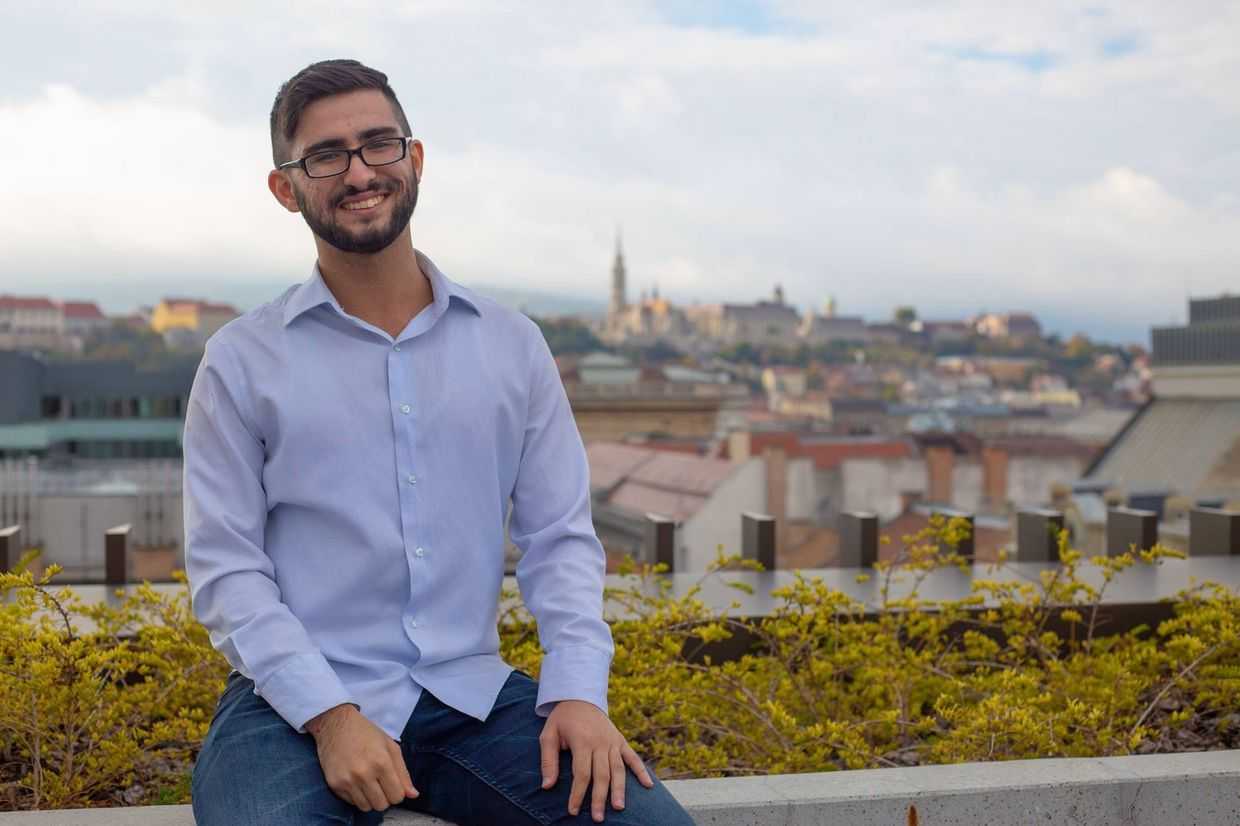

Vafa Naghi is 36-years-old former journalist and graduate of Istanbul’s Sabahattin Zaim University. She could have had a bright career in Baku or abroad. But after graduation, she moved back to Kholgaragashli, the village of her birth, to start a small sewing workshop to help the local women find jobs and their independence. After submitting this piece, she was elected to the municipal council.
‘When I was in the fourth year [of university], my grandmother died and after many years away I had to return to the village. I had not been to that village for 16 years. I saw women at the mourning ceremony. They were talking about their problems. All in all, I saw that the women in the village were very sad and hopeless.’
‘They were drowning in problems, it made a very strong impression on me. When I returned [to Istanbul], what I saw made me think for a long time. I thought, how can I help them?’
‘I applied to several places to get support for women in the village. After a long search, I was able to obtain some support from an international organisation for my idea [to open a sewing workshop to help the women]. After earning this support, as soon as I finished my university exams, I started my work in the village.
‘First I went back to Baku and sent a message to my parents, who lived in the same village. When I went to the village, my father had already informed the villagers [of my plans]. When I returned to the village, many people approached me and applied for work.’
‘The women in the village were happy when they heard about my plans. They treated this work as a glimmer of hope. But, what saddened me was that I was unable to find employment for all women who applied to me for work. I had to make choices.’
‘I gave preference to women who were in the most difficult situations, those in need, and those women who had no income. I gave them jobs. I would have liked to provide all of them with jobs, but it was not possible.’

‘First, I applied to the municipality of the village to allocate space for the sewing enterprise in the village. The mayor asked me to pay ₼1,000 ($590) for the place. But I didn’t have enough money. I asked the municipality for help with my idea. But when I couldn’t get a positive answer, I rented a one-room property in the village. I repaired it and started working.
‘The room now contains three sewing machines, one table for the ironing board, and the other table using for cutting fabric. There are six women working in the room. I am very happy to be able to do business in such humble conditions.’
‘My goal was to help women in the village. I did all these things so that the women would not lose hope. I could go back and work as a journalist. I have perfect command of the English language, I could even work in international organisations, but I did it to realise this idea and to benefit more people.’
‘We are still able to sell our bedding sets and other products through fairs and social networks. I was able to pay women the salaries for the first months from their sales revenue. It makes me very happy.’
‘We also receive bulk orders through the internet. I deliver orders to clients myself. I have no team yet, but I hope it will happen soon. I also fulfil the orders from buyers myself. And I answer clients myself, both on social networks and on the [wider] internet.’
‘Every time I get an order from the capital, I have to come to Baku. When I come to Baku I buy new fabrics. I put the product in a cafe in Baku or in the district centre, the customer comes and takes the product, and then I go and take the money. Or buyers pay the money, and I deliver the product personally.’
‘To be honest, I never dreamed of being a businessperson, of having a lot of money and having a brand. My only goal is to help people. I’m trying to develop this work so that I can help more people. I don’t want this to be limited to the people in the village. I want this to spread.’
‘Let this work help more people, and give more people hope.’

‘After I set up the sewing factory, the village mayor also tried to do something for women. He gathered women in the village’s cultural house and said that wanted to open a sewing business for them. The women did not agree with this proposal, instead, it was decided to open a confectionery facility for them.’
‘Maybe the mayor thought, after listening to me, that the women should be given jobs, and that he should listen to them.’
‘There are so many problems in the village that they cannot be solved individually or with small jobs. So I put forward my candidacy for the municipal council. Although the municipality has little authority in Azerbaijan, I want to use those powers and try to solve those problems.’
‘Most of the people in the village laughed at my candidacy. It was strange to them that a young girl was trying to join the municipal council. But I’m positive. People told me that they would vote for me. Even people who have never voted before took a great interest. I think it is necessary to give back people’s confidence in voting.’
‘I want women in the village to socialise. There are many places where men come together. But there are no places for women to do the same.’
‘[The women] stay at home. They are dependent [on others]. They cannot fulfil their wishes. They must be economically free to do that. I think it is necessary to create jobs to give them that freedom.’
‘True, I can’t give them a high salary. But I hope it will be good in the future.’
‘At present, it is not only the six women [workers] who go to the sewing workshop, almost all the village women gather there. I created this place for them myself. I want to create a centre for young people and women in the village. Let there be free Internet in that centre. Let them spend their time there. Let them watch movies, use social networks and use the Internet. Let there be English language courses for children and teenagers there.’








